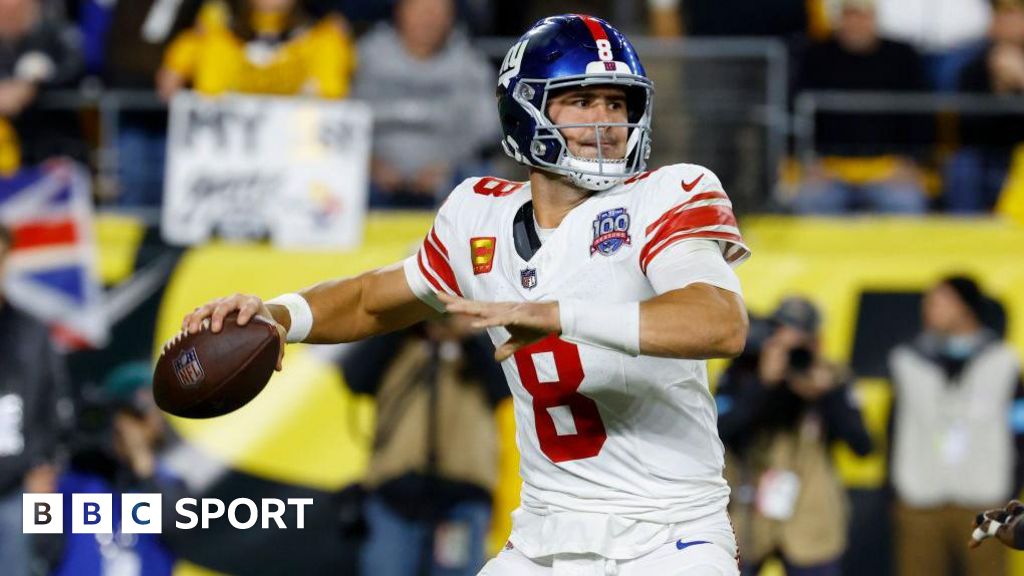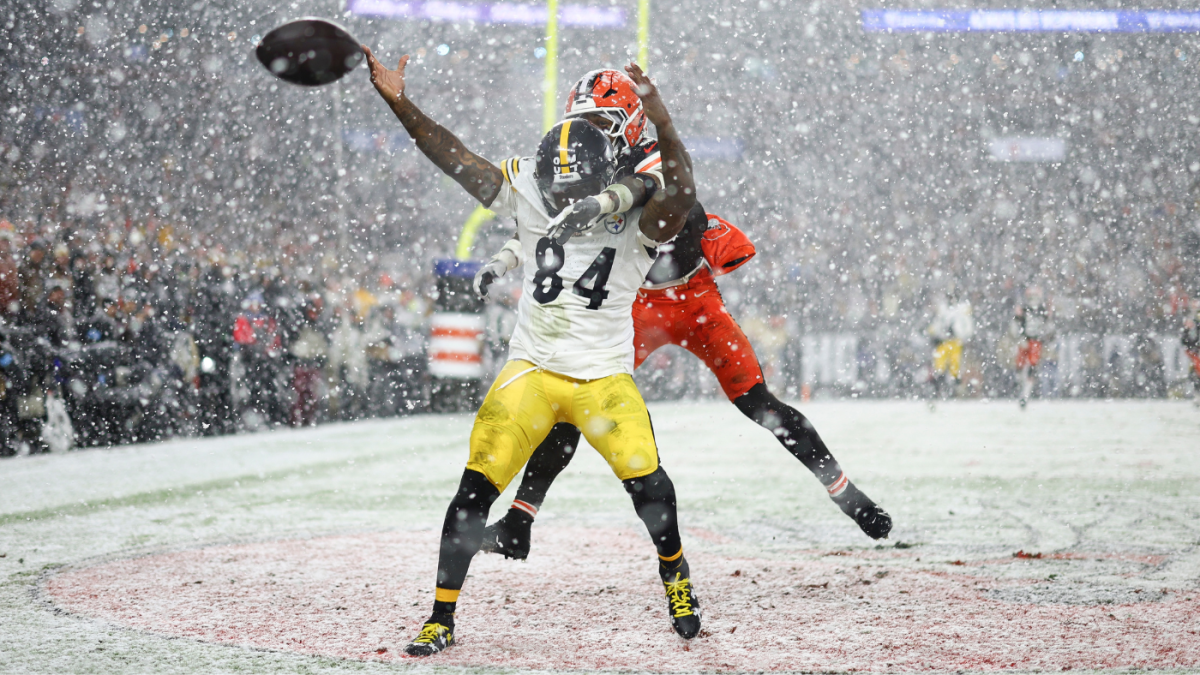Packers-Eagles in Brazil marks NFL’s next step in push to become global sport

The NFL on Friday will hold Eagles-Packers in São Paulo, Brazil, with the country home to more than 200 million people and the world’s eighth-largest economyGetty Images
Friday’s Eagles-Packers game in São Paulo is the latest move by the NFL in the push to “make American football a global sport,” and the league sees Brazil — home to more than 200 million people and the world’s eighth-largest economy — as a “key market,” according to Rosati, Lara, and Williams of BLOOMBERG NEWS. About a decade ago, the NFL “ramped up” investment in the country and now says it has 36 million fans in Brazil, which according to surveys by an independent research firm placed it second behind Mexico for international NFL fandoms. American football is “barely played” outside the U.S., and the sport has “lots of quirky rules that can make it hard to learn.” The NFL’s Flag program overseas, which debuted in Brazil last year, aims to “teach players the game and convert them into fans.” A few years ago, the NFL also started a global markets program, which “allows clubs to focus on building fanbases in foreign markets.” The Patriots and the Dolphins have rights to Brazil. Since getting access to Brazil two years ago, the Dolphins have “held watch parties, hosted coaching clinics and used former players to engage fans.” The league hired marketing agency Effect Sport to “build awareness” for the sport and league in the country, with events including an NFL-sponsored Super Bowl watch party event (BLOOMBERG NEWS, 9/5).
WHY ARE THEY THERE? In Philadelphia, David Murphy writes the “almighty dollar explains most things in life,” including why the Eagles are playing this game in Brazil. The Eagles “may be sacrificing a home game in front of 67,000 to play on a neutral site in front of nearly 50,000,” but Eagles owner Jeffrey Lurie “isn’t simply playing the good soldier.” If the NFL sees a lucrative market in Brazil, Lurie “certainly sees an opportunity for his team to capture a lucrative share of it.” A lot of Brazilians’ “disposable income” is currently being spent on things other than officially licensed NFL jerseys, jackets, and caps. Every Brazilian who watches tonight’s game “will see the Eagles dressed in the uniform colors of the second-most popular soccer club in the country.” The Eagles will wear their all-black alternate jerseys with black helmets — which was a “branding decision, through and through.” Likewise with the Packers, who despite technically being the visiting team will take the field in its “green-and-gold home jerseys.” It is “not by accident that those are the official colors of the Brazilian national soccer team” (PHILADELPHIA INQUIRER, 9/6).
BREAKING THROUGH: THE ATHLETIC’s Brooks Kubena wrote how deeply the NFL “embeds into Brazilian life depends on how successfully the sport breaks through significant cultural, political and financial barriers.” Football is a “distant enigma” to most of the Brazilian population, even among the wealthy “who discovered the sport in private school or when studying in the States.” But enigmas can be “lucrative” when there is an “opportunity to view them up close.” When asked how many new clients the pre-sale produced for investment management firm XP, CMO Lisandro Lopez “chuckled” and said, “A lot.” As the NFL “digs into the market share of a soccer-crazed country,” it is “uncovering an audience with a history of limited access to live broadcasts, a passionate yet unwieldy football federation that needs funding and reformation and a pool of athletes who, like many Brazilians, chase dreams while straddling the poverty line” (THE ATHLETIC, 9/3).
NO COINCIDENCE: In Green Bay, Ryan Wood noted if the league’s expanding reach is “inevitable,” its new “handpicked region of influence is no coincidence.” São Paulo is a “global city immersed in diverse culture,” home to 21.6 million people. It boasts the world’s largest population of Japanese people outside Japan. Businesses “flock here from across the world.” The NFL is “just the latest in a long line of enterprises hoping to maximize the windfall this international hub offers.” There is also a reason the Packers “were targeted to be part of this South American audition.” A year ago, an NFL Brazil poll revealed the Packers are the nation’s “most popular American football team,” with a fan base share of 12.25% — more than a full percentage point ahead of the second-place 49ers. The Packers’ bond with Brazil “comes from a shared DNA between team and country.” More than 7,000 soccer clubs are scattered throughout Brazil, each “sharing a common anthem” — individuals “do not own teams.” Soccer belongs to the community. The Packers were a “natural fit for a society that appreciates egalitarianism in its sports” (GREEN BAY PRESS-GAZETTE, 9/5).
TAKING THINGS GLOBAL: In D.C., Liam Griffin wrote the NFL has “long had designs on taking its product global.” George Washington Univ. sports management professor Lisa Delpy Neirotti said the NFL’s fan base in the U.S. is “kind of at a cap right now.” She added, “How many more Americans can be watching football? So they have to, if they’re going to grow, expand internationally.” Griffin noted the 2024 NFL schedule features five international matchups, with games in London, Munich and Sao Paulo. The international expansion “will continue in 2025 with eight games on foreign soil,” including at least one event in Madrid. While 120 million Americans tuned in to the 2024 Super Bowl, the global audience for the game “came in at a relatively modest 62.5 million.” The NFL sees that number “as an indication of an appetite for the American game that has barely been tapped” (WASHINGTON TIMES, 9/4).
Related
Daniel Jones released: New York Giants part ways with struggling…
The New York Giants have "mutually agreed" to terminate the contract of quarterback Daniel Jones, less than two years after he signed a $160m extension with the
Browns top Steelers in snow; previewing crucial week in NFL,…
This is an article version of the CBS Sports HQ AM Newsletter, the ultimate guide to ev
NFL gameday guide: Taylor Swift’s rival, Aaron Rodgers’ despair, Kyle…
Mob movies, Motown magic, more Aaron Rodgers-centred drama, the 'Harbowl' and rushing fireworks between Kyle Shanahan and Matt LaF
Saudi wealth fund’s expansion into North American soccer raises questions
A leading human rights organization has described a sponsorship deal between Concacaf and the Saudi Arabia Public Investment Fund (PIF) as sportswashing, critic













